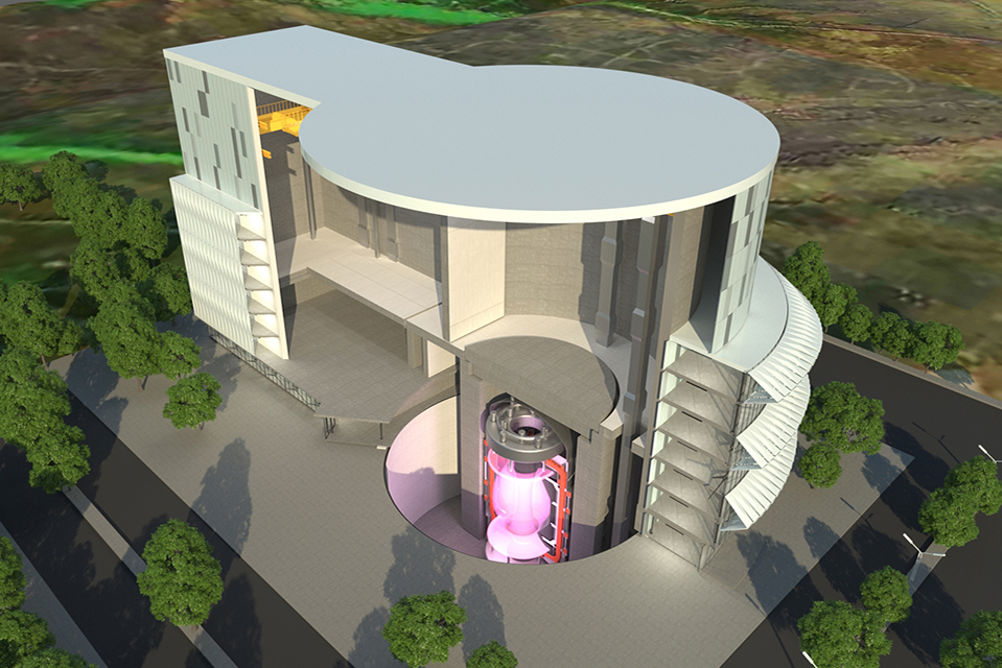The UK nuclear energy sector plays a significant role in the country’s energy generation and economic landscape. Nuclear power provides about 15-20 per cent of the UK’s electricity, making it a cornerstone of the nation's clean energy mix.
This sector supports thousands of jobs and contributes to national energy security while aiding the UK's commitment to reducing carbon emissions. According to estimates, the nuclear industry generated approximately £6 billion in revenue in recent years and supports over 86,900 jobs in direct and indirect employment across the UK.
Types of Organisations in the Sector
Energy Generation Companies
These are organisations that own and operate nuclear power plants, like EDF Energy and GE Hitachi Nuclear Energy. They play a significant role in providing energy to the grid, operating plants safely, and planning for future power needs.
Manufacturers and Suppliers
Companies like Rolls-Royce and Babcock International Group provide critical components, such as reactors and turbines, for nuclear facilities. Their work ensures the equipment meets the high safety and operational standards of the nuclear sector.
Civil Contractors
Specialised construction firms, such as Laing O'Rourke, are responsible for building and maintaining large-scale nuclear facilities, including power stations and waste management infrastructure.
Consultants and Engineering Firms
Firms such as Jacobs and AtkinsRéalis provide technical expertise, project management, and engineering consultancy services, ensuring the design, safety, and regulatory compliance of nuclear facilities.
Government and Regulatory Bodies
Organisations like the Nuclear Decommissioning Authority (NDA) and the Office for Nuclear Regulation (ONR) are responsible for policy, safety, and environmental standards, ensuring nuclear operations comply with stringent legal and ethical standards.

Key Trends Shaping the UK Nuclear Sector
Several major trends are driving the future of the UK nuclear energy sector, influencing both its operational focus and areas of innovation.
Decarbonisation and Net-Zero Goals
The UK government’s target to reach net-zero carbon emissions by 2050 has underscored the need for low-carbon energy sources. Nuclear energy’s reliability and low carbon footprint make it essential in offsetting intermittent renewable sources, like wind and solar. Investment in nuclear power is expected to grow, emphasising the need for clean and stable power.
Small Modular Reactors (SMRs)
SMRs represent a revolutionary approach to nuclear energy. Smaller and more flexible than traditional reactors, they can be manufactured in factories and deployed quickly, reducing costs and construction time. Rolls-Royce leads the UK's SMR initiatives, aiming to develop and deploy SMRs to supplement traditional nuclear plants and support remote or off-grid areas.
Waste Management and Reduction
Nuclear waste management remains a priority in the sector. Innovations in waste processing, recycling, and disposal, such as advanced reprocessing techniques, are helping reduce the environmental impact of nuclear energy. The UK is also investing in new disposal facilities and improved technologies for managing radioactive waste safely.
Fusion Research and Development
Fusion energy holds the potential to provide almost limitless clean energy by replicating the processes powering the sun. The UK’s STEP (Spherical Tokamak for Energy Production) project is working to design a prototype fusion power plant, and if successful, it could revolutionise the energy industry.
Digital Transformation and Innovation
As with every sector, digital technologies like artificial intelligence (AI), remote monitoring and predictive maintenance are reshaping nuclear plant operations. These innovations enhance safety, streamline processes, and reduce maintenance costs, allowing for more efficient management of facilities.

Major Nuclear Projects in the UK
The UK nuclear industry is undergoing significant expansion, with several ambitious projects shaping the future of the sector. Some of these are expected to provide stable employment and career development opportunities for years to come.
Hinkley Point C
Located in Somerset, Hinkley Point C is the first new nuclear power station built in the UK in over 20 years and is expected to generate enough electricity to power around six million homes. The project, led by EDF Energy, has created thousands of jobs and offers extensive engineering opportunities, from civil and mechanical engineering to advanced control systems.
Sizewell C
Another significant project from EDF Energy, Sizewell C is expected to provide similar benefits to Hinkley Point C. The 3.2-gigawatt nuclear power station, set to be built on the Suffolk Coast, is aiming to support sustainable energy production in the UK. It will also incorporate learnings from Hinkley Point C to improve construction efficiency and reduce costs.
STEP (Spherical Tokamak for Energy Production)
Funded by the UK government, the STEP project aims to develop the world’s first commercial fusion power plant by 2040. Managed by the UK Atomic Energy Authority (UKAEA), STEP is pioneering fusion energy, which produces minimal waste and could provide an almost limitless power supply.
Sellafield and Decommissioning Projects
Sellafield – formerly known as Windscale – is a major decommissioning site that has been central to the UK nuclear industry for over 70 years. The site is now focused on waste management and decommissioning activities, providing a range of roles in environmental engineering, project management, and waste reduction innovation.
More on Nuclear from The Engineer
Career Opportunities in the UK Nuclear Sector
Nuclear Engineering
Roles in nuclear engineering involve designing, building, and maintaining nuclear power plants and reactors. This can range from reactor physics to thermal hydraulics, mechanical design, and plant engineering. Companies like EDF Energy and Rolls-Royce actively recruit graduates in these fields, often providing structured training programs to build core competencies.
Mechanical and Civil Engineering
Mechanical engineers design and maintain the systems required to operate nuclear facilities, including turbines, pumps, and piping. Civil engineers, on the other hand, are essential in constructing and maintaining the physical structures of nuclear power plants. Firms like Babcock, AtkinsRéalis, and Jacobs have a continuous demand for skilled engineers in these areas.
Project Management
Nuclear projects often involve complex, multi-year timelines and require careful oversight. Project management roles are available in energy companies, engineering firms, and government agencies. These positions are ideal for engineers with organisational and leadership skills who are interested in planning and coordinating large-scale projects.
Safety and Environmental Engineering
Safety engineers ensure that nuclear facilities comply with safety standards and regulations. Environmental engineers work to minimise the environmental impact of nuclear operations, focusing on waste reduction, emissions control, and site restoration. Organisations like the NDA and the ONR provide opportunities for engineers passionate about environmental stewardship and safety.
R&D and Innovation
Research and development positions are particularly prevalent in emerging areas like SMRs and fusion energy. Graduates with a strong interest in advanced technology can find exciting opportunities in research institutions and companies working on next-generation nuclear reactors, such as those involved in the STEP project.
Regulatory and Compliance Roles
The nuclear industry is highly regulated, creating demand for engineers with knowledge of compliance and safety standards. These roles involve monitoring operations, conducting inspections, and working with regulatory bodies to ensure safe practices.
Digital and Data Science
As digitalisation transforms the nuclear sector, data scientists, software engineers, and cybersecurity experts are increasingly needed. Digital roles focus on optimising operations, using AI for predictive maintenance, and ensuring the security of nuclear infrastructure.
The UK nuclear sector offers diverse and rewarding career paths for engineering students and graduates, from hands-on roles in energy generation and plant management to advanced R&D in fusion and SMRs. With the UK committed to a low-carbon future, the nuclear industry will remain a critical component of the country's energy mix, providing ample opportunities for young professionals to engage in meaningful, impactful work.
The sector’s evolving landscape ensures that those entering it will be part of a forward-looking industry addressing some of the biggest energy and environmental challenges of our time.
The Student Engineer is a special channel of The Engineer aimed at educating and inspiring engineering undergraduates about the career opportunities in engineering and also offering practical advice on how they can access these opportunities.











Guest blog: exploring opportunities for hydrogen combustion engines
"We wouldn't need to pillage the environment for the rare metals for batteries, magnets, or catalisers". Batteries don't use rare...